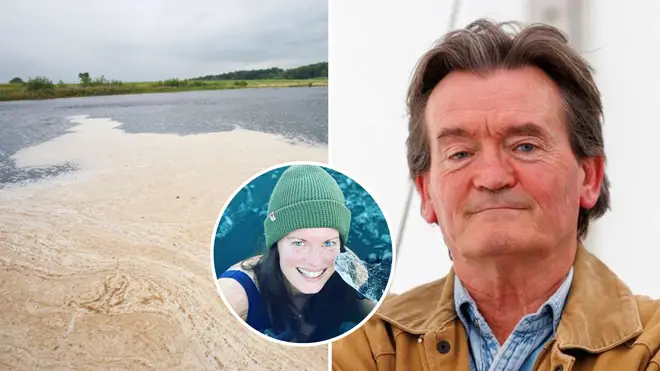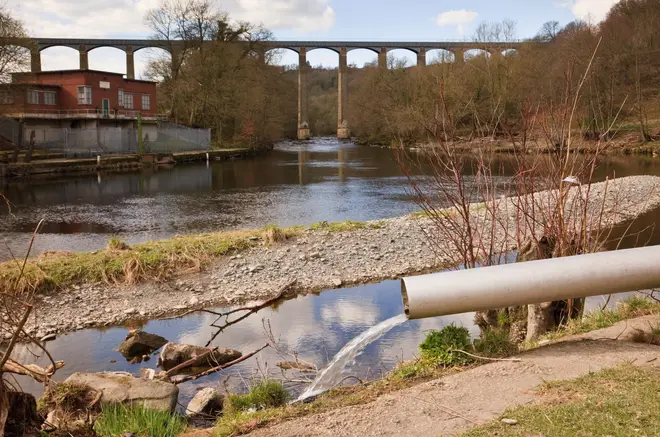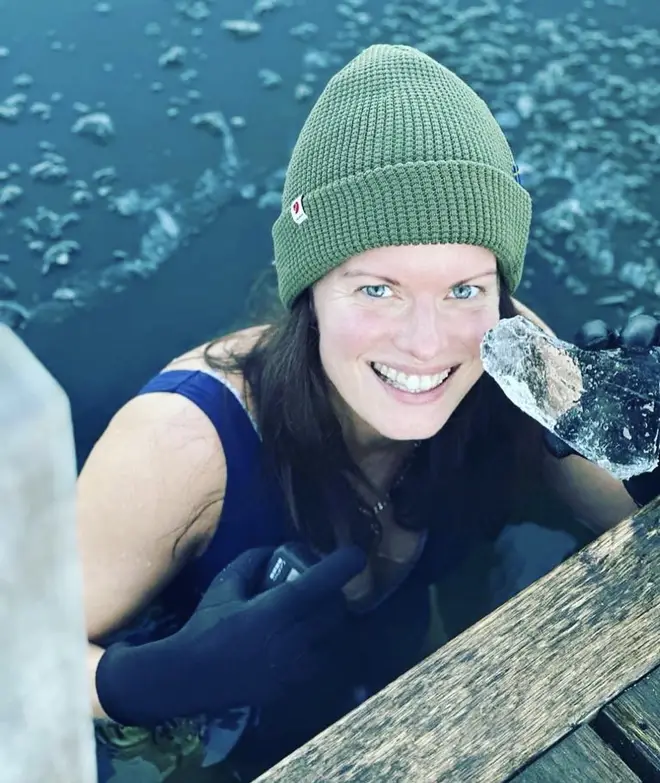
Nick Ferrari 7am - 10am
6 September 2023, 08:20 | Updated: 6 September 2023, 09:01

Five people per day have contracted waterborne diseases after swimming in the UK’s polluted seas, rivers and lakes, according to new data obtained by LBC.
Since the start of 2023, the campaign group Surfers Against Sewage has received 1,142 sickness reports from people complaining of various ailments following a dip in Britain’s waters - already representing a 60% increase on the previous twelve-month period. Illnesses cited include gastroenteritis, Weil’s disease and a legion of skin, nose, eye and ear infections.
The shocking figures come as environmental campaigner and former lead singer of the Undertones Feargal Sharkey revealed to LBC that he was "24 hours from leaving this mortal coil" as a result of a bout of Weil’s disease.
The government and industry firms have faced significant pressure in recent years over the state of Britain’s waters: 824 sewage spills occurred daily across the course of 2022, and companies such as Thames, Wessex and Southern Water have drawn criticism for illegally discharging sewage on days where there was no rainfall.
As a result, the issue of water cleanliness has become an increasingly important political battleground ahead of next year’s general election. Labour leader Sir Keir Starmer recently accused the government of "having its head in the sand" over sewage discharge at Britain’s beaches; campaigners, meanwhile, have consistently voiced concerns about the consequences of such leaks for the health of families attempting to enjoy a day at the seaside.
Read more: Michael Gove planning to rewrite water pollution rules in bid to boost housebuilding

Mum-of-two Debbie Campbell became ill after jumping into a polluted river in 2021. Recounting the experience to LBC, she described how a swim in what she thought was a "lovely, special place" resulted in her being bed-bound for four days.
She said: "I was mindful, I looked around and everything seemed to be fine and then as I was swimming, I started to get a smell of sewage and it was quite gooey underneath my feet. I didn’t like that at all… When I got home and had a shower, I could smell sewage coming off my skin.
"I just didn’t feel right at all in myself. The next day, I was throwing up for the first of three or four days; I had diarrhoea and couldn’t hold any food down.
"I was in bed for pretty much four days… with what I experienced, I just don’t allow my children into rivers."


Ms Campbell’s illness inspired her to abandon her career as a model and focus on campaigning for cleaner rivers, a cause long championed by Mr Sharkey, whose name has become synonymous with the issue of water pollution.
Speaking to LBC, Mr Sharkey recalled how his bout of Weil’s disease left doctors fearing for his life.
He said: "I still have the words ringing in my ears from my last day as an outpatient during the process of recovering from Weil’s disease: [the consultant said] 'Feargal, you were probably 24 hours away from leaving this mortal coil'".
"That’s the impact that kind of disease can have and that’s the kind of impact that this government’s policy - and that failure of regulation - has.
"It is just desperate that people simply now have to question whether they want to do something as innocent as swimming in a local river."

For Mr Sharkey, the question of how to tackle these problems lays in the enforcement of existing legislation.
He said: "Water companies have a statutory obligation to build and maintain sewage systems capable of effectively dealing with the contents of those sewers - that’s what the law says and that’s what they signed up to… what the government needs to do is enforce the law as it stands and make these companies compliant with it.”
In response to LBC’s investigation, the industry body Water UK highlighted that companies have promised to invest £10bn over the course of the next decade in what they describe to be "the biggest transformation of our sewers since the Victorian era", with bathing waters to be "prioritised and among the first to receive funding."
A spokesperson for Water UK said: "We recognise that we now need to do the same for our rivers and inland bathing areas and are proposing to invest £10 billion – a tripling current levels – in the biggest transformation of our sewers since the Victorian era. As part of this, bathing waters will be prioritised and among the first to receive funding."

Water campaigner Feargal Sharkey calls for public inquiry into Thames Water
But for Steve Reed, who was appointed as Labour’s new shadow environment secretary earlier this week, the issue of water pollution is far from abating.
He said: "It’s absolutely shocking that people going out in the water in the summer are getting ill because the government has failed to properly protect our waterways from the kind of filth and effluent that we are seeing pumped into them; it’s entirely unacceptable that this situation seems to be getting worse rather than improving.
"Labour would toughen up the regulatory system, make sure that we have automatic fines to punish law-breaking companies - a much quicker way to get in revenue which can then be used to invest to ensure mandatory monitoring is taking place."
Last night, a source close to the Environment Secretary Therese Coffey questioned the effectiveness of Labour's plan to issue automatic fines, pointing out that whilst this might see penalties being levied more quickly, it could result in less severe punishments than when water companies are subjected to a full investigation.